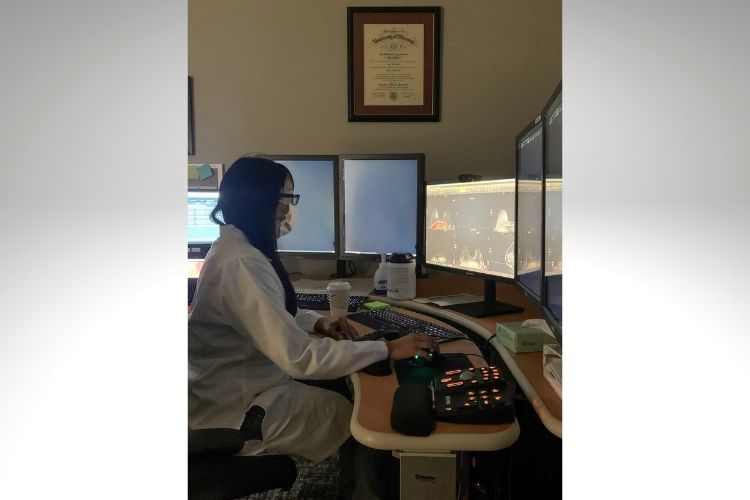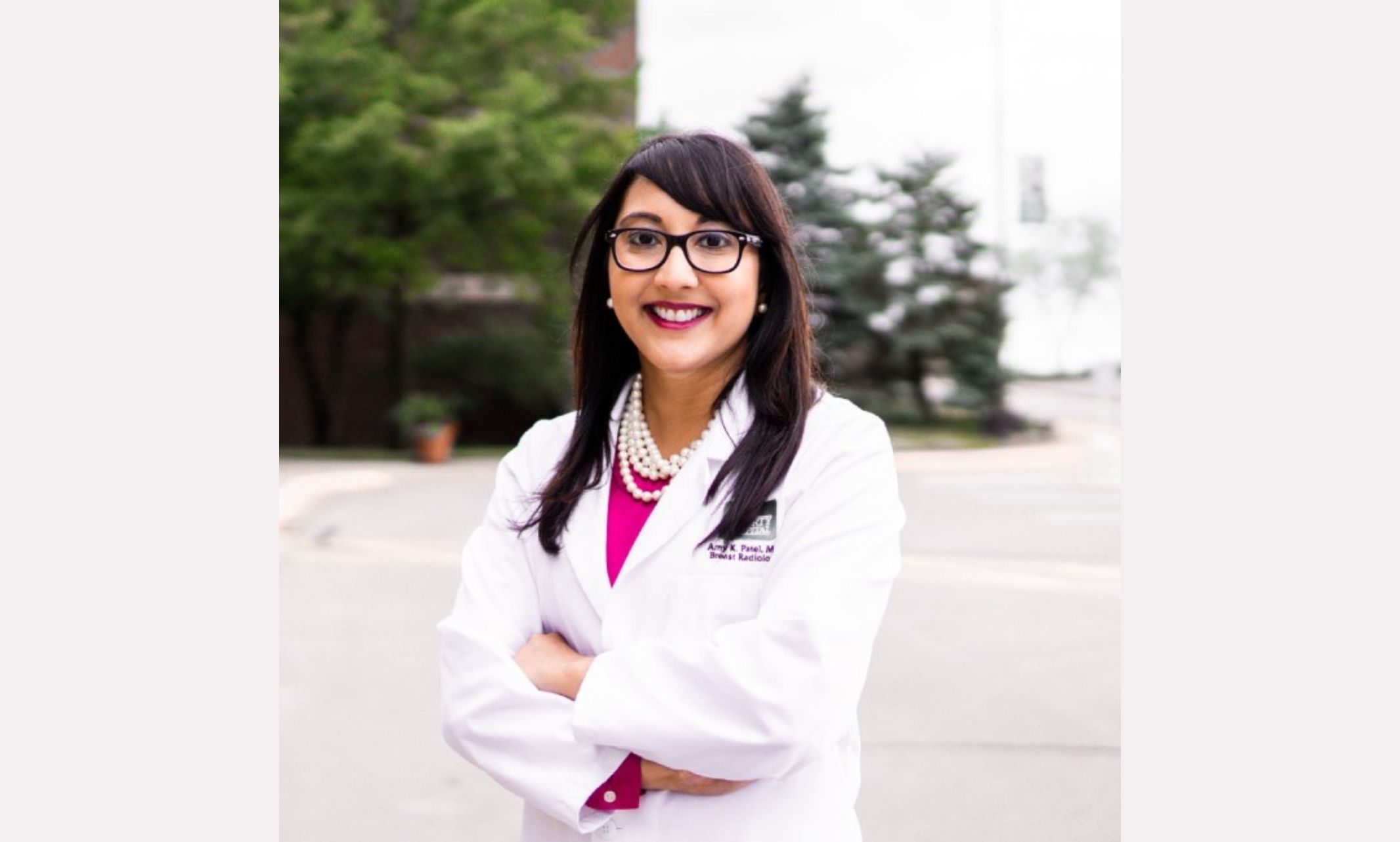Growing up in Chillicothe, Missouri, a town of fewer than 10,000 people, Amy Patel didn’t see many physicians that looked like her.
“There was only one primary care woman physician in my hometown and there weren’t any women who looked like me, a woman of color. From a young age I realized there was such a need for women practicing specialized care, but especially for women of color,” Patel said.
That observation sparked a fire and passion in Patel that has continued to grow. Patel went on to study medicine at the University of Missouri-Kansas City and graduated from the school’s six-year medical program. During medical school she completed a rotation with a breast radiologist at Washington University in St. Louis, which was a turning point in her decision to specialize in breast cancer radiology.
After completing a breast imaging fellowship at Washington University, Patel began her professional career in Boston, and even found time to work as a faculty member at Harvard. But eventually, Patel felt called to return to Missouri.
“I always wanted to come back to the Midwest to assume a leadership position where I could make a difference and make an impact,” Patel explained.
In July of 2018 Patel was named medical director of the Breast Imaging Center at Liberty Hospital. Since her arrival she’s helped grow the program, adding an additional breast imaging specialist, starting a plastic surgery program and partnering with the UMKC School of Medicine to launch a Breast Radiology elective course. Patel teaches the course, which involves a rotation designed to introduce medical students to a range of screening and diagnostic breast imaging modalities to multidisciplinary care. She hopes this course will help others, especially women and minorities, become more interested in the profession.
“The percentages of women entering the radiology field have remained around 27% a year, and those numbers for underrepresented minorities are even lower. Right now, there are so many opportunities for students and I’m hopeful in the future, we will start to see growth in the percentages that have remained stagnant for many years,” Patel said.
In addition to helping launch the new rotation, Patel says one of the initiatives she’s most excited about is a newly launched genetics program within Liberty Hospital.
“Knowing your family history is very important because that could potentially warrant genetic consultation and then possible testing. That is why it's so important for a hospital system to have a genetics program and that's why we’ve worked really hard to have one here,” she adds.
While familial genetic indicators may be out of our control, Patel says everyone can proactively take steps to lower their risk of breast cancer.
“A healthy diet is important, maintaining a body mass index that is within recommended limits is key because we know obesity is a risk factor for breast cancer. Moderate alcohol consumption and not smoking are also important ways to lower your risk,” Patel said.
Regular screenings are also key in the fight against breast cancer. Patel says screening rates among women plummeted into the single digits during the pandemic due to the pause of routine screenings in Spring and early Summer of 2020 under advisement of the CDC. While the numbers have started to rebound, they’re still down about 13% compared to pre-pandemic.
“I always wanted to come back to the Midwest to assume a leadership position where I could make a difference and make an impact." — Amy Patel

“We are particularly worried about women of color, who tend to be the ones with more barriers when it comes to access and education. If screening rates don’t pick back up, we are worried that disparity could widen even further so it's really going to take the entire breast cancer community to come together and encourage patients of all backgrounds to get screened,” Patel said.
Patel says October is a good time to get screened and encourage friends and family to do so as well.
“Breast Cancer Awareness Month is not just about raising money for research; the awareness component is equally as important, and I love to see specialists coming together and encouraging others to go and get your mammogram.”

